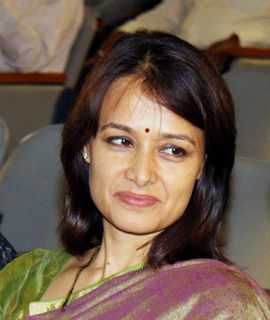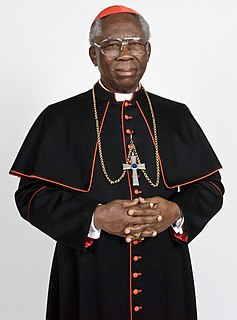A Quote by Thomas Keating
The spiritual traditions of all the religions have certain similarities that are unmistakable. They share many of the same basic practices like sacred reading, spiritual guidance, moderation in eating, drinking and sexual expression, and above all, trying to be aware of the presence of God in other people and in everyday life.
Related Quotes
There is no good trying to be more spiritual than God. God never meant man to purely spiritual creature. That is why He uses material things like bread and wine to put the new life into us. We may think this rather crude and unspiritual. God does not: He invented eating. He likes matter. He invented it.
Reading is at the threshold of spiritual life; it can introduce us to it; it does not constitute it. There are, however, certain cases, certain pathological cases, so to speak, of spiritual depression in which reading can become a sort of curative discipline and assume the task, through repeated stimulation, of continuously reintroducing a lazy mind into the life of the spirit.
Traditional religions practices are important.They allow us to share with others the communal experience of adoration and prayer,but we must never forget spiritual experience is above all a practical experience of love,and with love,there are no rules some may try to control their emotions and develop strategies for their behavior,others may turn to reading books of advice from "experts" on relationships but this is all folly.The heart decides and what it decides is all that really matters.
If we’re going to strive for spiritual growth, we have to be willing to put concepts into practice in our everyday lives, in all relationships with all people. You can’t separate your “spiritual life” from your “work life.” They’re both your life! In the same vein, you can’t separate money and happiness.
Sadly, many individuals don't know where to find God, and exclude him from their lives. When spiritual needs arise, they may look to the left, the right, or round about. But looking to other people on the same level cannot satisfy spiritual shortages. When the immortal spirit is starved, hunger persists for something more filling. Even when material success comes, there is a hollow ache - if living well falls short of living worthily. Inner peace cannot be found in affluence accompanied by spiritual privation.
For me, spirituality includes the belief in things larger than ourselves, an appreciation of nature and beauty, a sensitivity to the world, a feeling of shared connection with other living things, a desire to help people less fortunate than ourselves. All of these things can occur with or without God. I do not believe in the existence of God, but I consider myself a spiritual person in the manner I have just described. I call myself a spiritual atheist. I would imagine that many people are spiritual atheists.
It should be for satsang that we go to spiritual centers. By going there, people who are involved in the world can attain peace and concentration. The concentration gained when one goes there cannot be achieved if one sits at home. Even though the breeze blows everywhere, coolness will be felt more if we sit in the shade of a tree. In the same way, although God is all-pervading, this presence will clearly shine in certain places more than others. That is the greatness of satsang. Satsang is the best thing for spiritual advancement.
Beyond these models of reconciliation, a theology of mysticism provides some hope for common ground between Christianity and Islam. Both religions have within their histories examples of ecstatic union with God, which seem at odds with their own spiritual traditions but have much in common with each other.




































